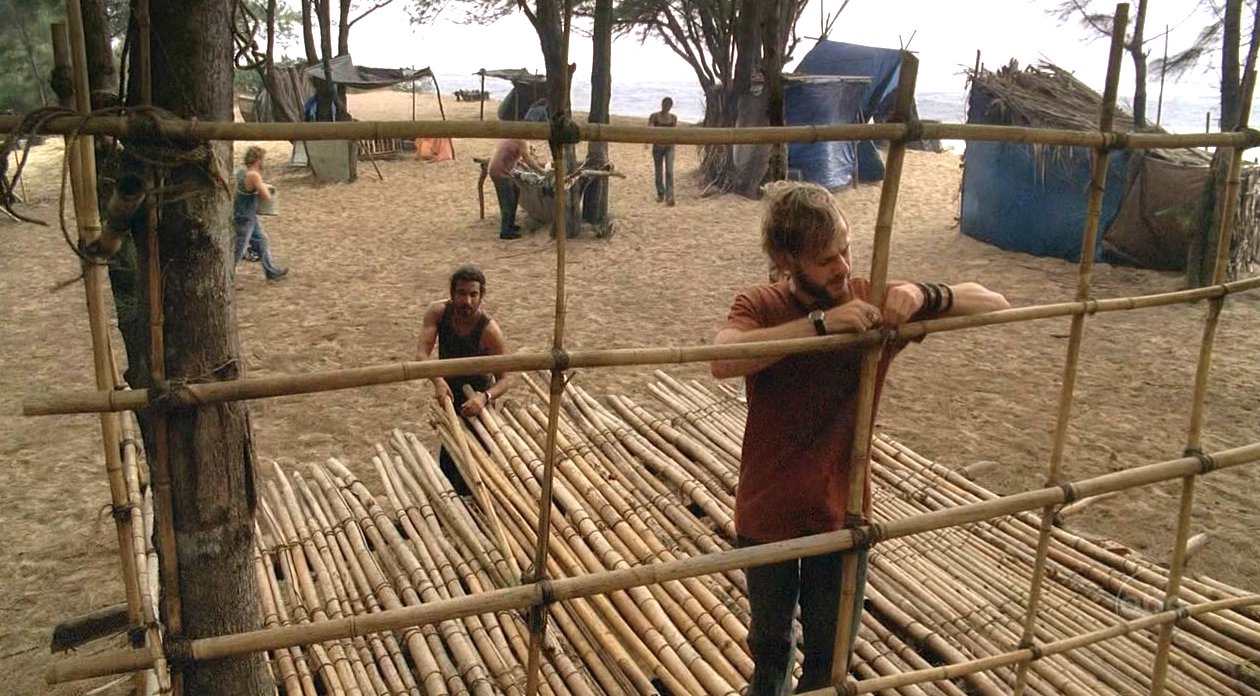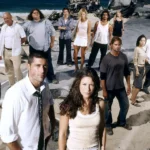LOST. More than just a series

November 2005. The pointless channel-hopping ended when I came across a scene of three people escaping through a rain-drenched jungle. The level of my disorientation did not differ from the ignorance of the characters themselves. The second episode, aired on the same evening, outlined the matter a bit – a group of plane crash survivors found themselves on an island in the Pacific, and the mysterious “monster” chasing them is just one of the anomalies and mysteries they will find on it. I was bought. My adventure with Lost has begun.
The Experience
At that time, I was such an inexperienced and young viewer that I had not had the opportunity to follow any series from beginning to end. The pilot of Lost drew me in with its dense atmosphere and mystery; I missed three-quarters of the first episode, and in that circumstances I hung on the edge of my chair staring at the unfolding action. From then on, every Thursday was a small holiday. Two episodes aired every week fired the imagination to the core; There were countless ideas for how to develop the plot, with thoughts swirling around potential answers to the ‘how’, ‘why’, ‘who’ and ‘when’. Especially since the questions multiplied practically every episode, and the answers were usually spared.

It was delivered extremely well. The structure of each episode, based on focusing on one character and showing their memories in the form of flashbacks with reference to real action, allowed for fantastic development and deepening of the character of a given character, while adding flavor to the events on the island. These, in turn, gave a lot of headaches with subsequent discoveries made by the characters and showing how a person changes in such an extreme situation.
The inexperienced and young viewer was very inconsolable when the season came to an end, ending in a cliffhanger ugly in its perfection. For the first time in my life, I felt the emptiness that one has after the end of the series watched (although I knew that they were already broadcasting the second season in the States), and a series of questions was added – what next? Searching for answers, I discovered one thing: Lost was all over the internet.
Soon I became part of the machine called the fandom. Of course, only a fragment, because Lost stimulated the imagination of viewers on an unimaginably wide scale. The degree of involvement of the fans of the series in what was going on in the plot and in thinking about what happened next was a phenomenon no less than the series per se.
Theories have been made about everything. Individual frames were analyzed, even the tiniest facts were combined with each other only to match at least one percent of the elements of the whole puzzle. The sequence of numbers, which is one of the most interesting secrets, has been used in lotteries by millions of people. The plot of the series itself developed from season to season in several directions. There were more and more characters, a relatively simple story at the beginning, it became more complicated with each episode, and the gears driving the machine accelerated regularly every week.
Also in Poland, where I come from, the craze was huge – an extensive forum was thriving, where you could share your impressions after episodes, theories and expectations, but where you could also play all sorts of summaries, rankings and polls. Sections were created typically for publishing one’s fanfics, and there were quite a lot of them. Equally popular was the blog whose author reviewed the latest episodes on an ongoing basis and shared news and spoilers from overseas. Lost went far beyond the framework of the “ordinary” series – for many it became an experience.

The creators made sure to add fuel, and they decided to pull their work out from behind the glass screen. Books, card games, gadgets and figurines were published. A so-called alternative reality game was created, run by the ABC station that broadcasts Lost. Divided into five phases, it allowed viewers to delve into the mythology of the series, discovering a series of tidbits and curiosities by following and analyzing several websites. The action lasted four months and made the waiting for the third season of the series more pleasant, and the information obtained thanks to it about the DHARMA initiative, which has been running for several seasons, was considered canonical. The puzzle grew bigger. The balloon was growing.

Related:
Less and Less Answers
The screenwriters with each season successively made the viewers lost no less than the characters of the series. Pushing the action forward and pushing the plot more and more towards science fiction, they began to marvel at all sorts of wonders, thoroughly enjoying what they created and serving up things that you wouldn’t even think of watching the first episode. The issue of riddles and mysteries became the proverbial hydra, because in the place of one solved, three more appeared. This fact was also quoted in one of the last episodes, when the slogan “Every answer raises another question” was uttered by a certain heroine.
This is ironic in that the farther to the end, the less it was explained, and the sentence quoted above sounds like justification by the creators. On the occasion of recent seasons, the Internet was already bursting at the seams with studies or podcasts of all kinds; die-hard fans wrote entire essays in which they logically laid out what they thought should and most likely will happen in future episodes. They could draw a lot from everything that the writers had already squeezed into the plot, including elements of Egyptian mythology. They deduced about the past and future of the characters, went back to the oldest episodes to find any connection to the current ones, even looked for physical similarities between the characters to verify if they might have a connection. Obsessively. Even too much, as it turned out.

Obi-Wan Kenobi said after the destruction of Alderaan that he felt a disturbance in the Force so strong as if millions of voices screamed in terror and then fell silent. The same thing happened to the most die-hard fans of Lost at the end of the series. With the fifth season, the creators have laid a fantastic foundation for what fans of the series have been waiting for – putting the cards on the table, satisfying the curiosity that has been a constant companion of the viewers for several years. Solutions were wanted. The last, sixth season became a needle for many, which brutally destroyed this whole balloon of expectations. Here we come back to the issue already mentioned above – the answers that so many people have been waiting for, most of them never came. Mainly the viewers were lost; all podcasts, theories and studies have become just another fanfic that has no coverage in reality.
“Characters,” said the creators. They were the most important in this story. Of course, the relationships between the characters, their psychological portrait and motivations are an extremely important element in the entire series, after all, it is not without reason that the series focused so much on individual individuals. However, did they become the reason why so many people devoted long hours of watching and activities related to the series? Doubt it.

Aside from the fact that the plots focused on the characters often dropped emotional bombshells on the viewers, what attracted the general public in Lost was something else – this eternal note of mystery, the multitude of possibilities offered by the island, references to religion, mythology and various dogmas. It was stimulating. It ignited thoughts and imagination and was something else. Of course, there are other shows whose fandoms are just as numerous and faithful, if not more so – just like Star Trek, Doctor Who or Sherlock – but I don’t know of another that reached out to the viewer to such an extent and took root in so many heads.

Aired in May 2010, the episode simply entitled The End crowned several years of adventure and aroused considerable controversy. For those who approached the whole thing lukewarmly, and the characters were indeed its most important element, the finale could be satisfying and touching. However, those who spent long hours of analysis felt cheated and would probably prefer the ending proposed by Ricky Gervais – “the fat one ate everyone” – to be true.
An Event
The fault of the series and false leads and hopes served by the creators, or too much involvement of the viewers? Probably a little of each. Bitter fans cursed the writers, writing off the entire show and calling the years spent watching it a waste. This is an extreme reaction, but on the other hand, the creators who accused these disappointed viewers of not understanding the whole sounded dishonest. I stand in between – the finale did not meet my expectations, but I also do not regret the time devoted to weekly watching, because the adventure with Lost brought a lot of small things to my life – before, for example, I did not know how attractive watching a series is, what words like spoilers and cliffhangers mean, or how Internet ethics works on forums and how much fun you can get from discussing with similarly dedicated people (and how many to meet, by the way), to name but a few.

Lost was an event. Although in the end they argued viewers with each other and with the creators, they left their mark in the history of television. I recommend that you write your own opinion – perhaps you, the reader, will also love this series. But be careful, because this love can be difficult.




